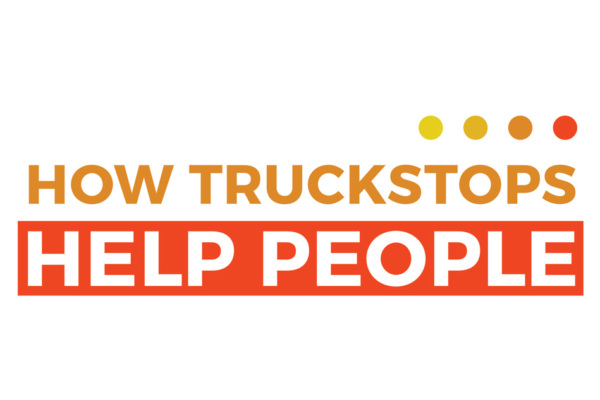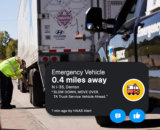The U.S. Department of Transportation’s Federal Motor Carrier Safety Administration (FMCSA) on July 16 issued a final rule that permanently bans drivers convicted of human trafficking from operating a commercial motor vehicle (CMV) for which a commercial driver’s license or a commercial learner’s permit is required.
The announcement was made just days after the U.S. DOT’s Advisory Committee on Human Trafficking submitted its final report to Secretary of Transportation Elaine Chao providing recommendations on actions the Department can take to help combat human trafficking. It also recommended best practices for states and local transportation stakeholders in combatting human trafficking. NATSO Vice President of Public Affairs Tiffany Wlazlowski Neuman served on the Advisory Committee’s Subcommittee on Awareness and Education.
In a statement announcing the new rule for commercial drivers, Secretary Chao said these initiatives marked important steps in a Department-wide campaign to keep America’s roadways from being used for human trafficking.
FMCSA said it issued the new rule to prohibit an individual from operating a CMV for life if that individual uses a CMV in committing a felony involving a severe form of human trafficking. The new rule revises the list of offenses permanently disqualifying individuals from operating a CMV for which a commercial driver’s license or a commercial learner’s permit is required.
The Human Trafficking Advisory Committee also on July 2 submitted its report to Secretary Chao that identifies strategies that state agencies and local transportation stakeholders can utilize to implement anti-human trafficking initiatives.
Representatives from organizations that fight human trafficking as well as academics and representatives of the various modes of transportation, including trucking, bus, airlines and ports had worked since December 2018 to draft the report.
The report by the Advisory Committee on Human Trafficking offers a systematic assessment of data, strategies, policies, protocols, training and awareness needs regarding the intersection of the transportation sector and human trafficking. Globally, it is estimated that as many as 24.9 million men, women and children are exploited through human trafficking, although the exact scope of human trafficking is difficult to ascertain.
Recommendations and best practices were outlined for the U.S. Department of Transportation, the U.S. Congress, states, private industry, NGOs and local transportation authorities with regard to funding, partnerships, policies and protocols, training and awareness, data and information-sharing and survivor support.
Specifically, the report recommends that the U.S. Department of Transportation continue funding for counter-trafficking initiatives and training programs, develop mode-specific model reporting protocols, facilitate focus groups and research, and measure progress among others.
The report also recommends that the U.S. Congress increase grants and other funding for all modes of transportation to combat human trafficking; dedicate federal funding for U.S. DOT counter-trafficking initiatives and provide funding for the creation of mode-specific human trafficking awareness training. The report also recommends increased funding for the National Human Trafficking hotline.
Recommendations for states include the creation of a state human trafficking task force and the implementation of mode-specific policies and reporting protocols as well as transportation and law enforcement training.
The report further lists human trafficking indicators for each mode of transportation and contains an appendix highlighting existing education and public awareness materials available for each mode of transportation.
The report includes “Implementation Guides” for transportation stakeholders that offer actionable next steps for state and private transportation industry stakeholders seeking to implement an anti-human trafficking strategy.
The implementation guide for truckstops and travel centers in the report includes information on the NATSO Foundation’s online education course, “The Role of Truckstops in Combating Human Trafficking,” as well as the NATSO Foundation’s many other public awareness resources, including the Foundation’s recently released toolkit, “Combating Human Trafficking.”
Subscribe to Updates
NATSO provides a breadth of information created to strengthen travel plazas’ ability to meet the needs of the travelling public in an age of disruption. This includes knowledge filled blog posts, articles and publications. If you would like to receive a digest of blog post and articles directly in your inbox, please provide your name, email and the frequency of the updates you want to receive the email digest.


